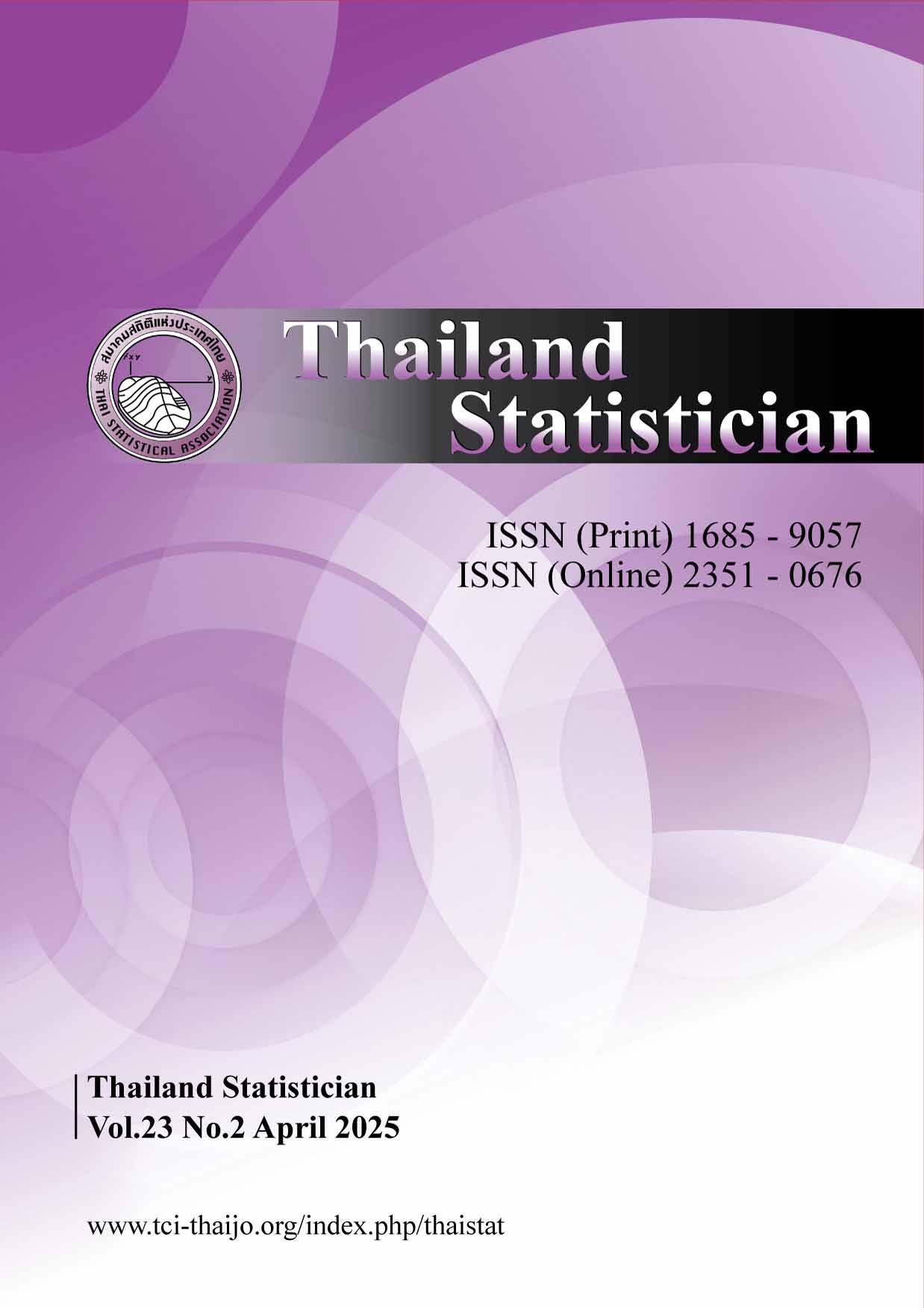Bayesian Hybrid Tripartite Randomized Response Technique
Keywords:
Estimation, marginal probability density function, relative efficiency, sensitive questionsAbstract
The response bias is a fundamental problem with wide range of tendencies for participants to respond inaccurately or falsely to questions. These biases are prevalent in research involving sensitive questions which have a large impact on the validity of surveys, In the quest to reduce bias in surveys, Warner (1965) proposed the Randomized Response Technique (RRT) which has undergone so many improvements/modifications. To further reduce these biases, this paper proposed a Bayesian estimation of Hybrid Tripartite Randomized Response Technique (BHTRRT) by using prior information to improve existing works on Hybrid Tripartite Randomized Response Technique (HTRRT). The Bayesian approach has emerged as a strong competitor to the traditional classical approach to randomized techniques; hence, its approach to HTRRT. The Bayesian approach accommodates other intrinsic parameter constraints in the posterior to improve statistical precision. The effectiveness of the proposed method was examined by conducting simulation study and compares the performance of the proposed estimator with conventional ones. Result showed that the proposed technique is more efficient and reduce response bias in survey better than the conventional ones.
References
Adebola FB, Adepetun AO. A new tripartite randomized response technique. J Niger Assoc Math Phys. 2011; 19: 119-122.
Adebola FB, Adediran AA, Ewemooje OS. Hybrid tripartite randomized response technique. Commun Stat Theory Methods. 2017; 46(23): 11756-11763.
Adebola OG, Ewemooje OS, Adebola FB. Plagiarism and examination malpractice: persistent examples of academic dishonesty. Afr J Appl Stat. 2019; 6(2): 723-739.
Adediran AA, Adebola FB, Ewemooje OS. Unbiased estimator modeling in unrelated dichotomous randomized response. Stat Transit New Ser. 2020;21(5):119-132.
Adepetun AO, Adewara AA. Bayesian analysis of Kim and Warde randomized response technique using alternative priors. Am J Comput Appl Math. 2014; 4(4): 130-140.
Adebola FB, Johnson OO. An improved Warner’s randomized response model. Int J Stat Appl. 2015; 5(6): 263-267.
Barabesi L, Marcheselli M. A practical implementation and Bayesian estimation in Franklin’s randomized response procedure. Commun Stat Simul Comput. 2006; 35: 365-373.
Ewemooje OS, Amahia GN. Improved randomized response technique for two sensitive attributes. Afr Stat. 2015; 10(2): 839-852.
Ewemooje OS, Amahia GN. Improving the efficiency of randomized response technique for two sensitive characters. FUTA J Res Sci. 2016; 12(1): 65-72.
Ewemooje OS, Adebola FB, Amahia GN. Alternative unbiased estimator in dichotomous randomized response technique. Commun Stat Theory Methods. 2019; 48(4): 383-400.
Ewemooje OS, Adebola FB, Adediran AA. A stratified hybrid tripartite randomized response technique. Gaziantep Univ J Sci. 2018; 31(4): 1246-1266.
Ewemooje OS. An alternative estimator for unrelated questions in tripartite randomized response technique. Gaziantep Univ J Sci. 2019; 32(4): 1308-1320.
Ewemooje OS, Amahia GN, Adebola FB. Estimating prevalence of induced abortion and multiple sexual partners using improved randomized response technique for two sensitive attributes. Commun Stat Case Stud Data Anal Appl. 2017; 3(1-2): 21-28.
Ewemooje OS, Adebola FB, Awogbemila TA. Substance use disorder prevalence using tripartite randomized response technique. Niger J Technol Res. 2019; 14(1): 55-61.
Greenberg BG, Kuebler RR Jr, Abernathy JR, Horvitz DG. Application of the randomized response technique in obtaining quantitative data. J Am Stat Assoc. 1971; 66: 243-250.
Gupta SN, Shabbir J. An Alternative to Warner’s randomized response model. J Mod Appl Stat Methods. 2006; 5: 328-331.
Hussain Z, Shabbir J. Bayesian estimation of population proportion of a sensitive characteristic using simple beta prior. Pak J Stat. 2009; 25(1): 27-35.
Hussain Z, Shabbir J. Bayesian Estimation of population proportion in Kim and Warde (2005) mixed randomized response using mixed prior distribution. J Prob Stat Sci. 2009; 7(1): 71-80.
Hussain Z, Shabbir J. Bayesian estimation of population proportion in Kim and Warde mixed randomized response technique. Electron J Appl Stat Anal. 2012;5(2):213-225.
Mangat NS. An improved randomized response strategy. J R Stat Soc Ser B Methodol. 1994; 56: 93-95.
Mangat NS, Singh R. An alternative randomized response procedure. Biometrika. 1990; 77: 439-442.
Perri PF, Elvira P, Manuela S. Estimating induced abortion and foreign irregular presence using the randomized response crossed model. Soc Indic Res. 2015; 129(2): 601-618.
Unnikrishnan N, Kunte S. Bayesian analysis for randomized response models. Sankhya B. 1999; 61: 422-432.
Warner SL. Randomized Response: a survey technique for eliminating evasive answer bias. J Am Stat Assoc. 1965; 60: 63-69.
Winkler R, Franklin L. Warner’s randomized response model: a Bayesian approach. J Am Stat Assoc. 1979; 74: 207-214.
Downloads
Published
How to Cite
Issue
Section
License

This work is licensed under a Creative Commons Attribution-NonCommercial-NoDerivatives 4.0 International License.




